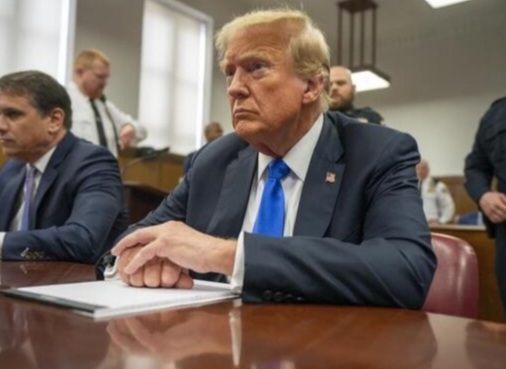In a historic decision, a judge on Friday scheduled President-elect Donald Trump’s sentencing in the hush money case for January 10, just days before his return to the White House. Despite the conviction, the judge indicated Trump would not face jail time.
This ruling sets Trump on course to become the first U.S. president to assume office with a felony conviction. Judge Juan M. Merchan, who oversaw the trial, stated in a written decision that Trump would receive a “conditional discharge,” meaning no jail time, fines, or probation.
Merchan rejected Trump’s arguments for dismissing the case based on presidential immunity and his impending presidency. The judge found no legal reason to delay sentencing, asserting it was his duty to finalize the matter before Trump’s January 20 inauguration. “Finality in this case is necessary to serve justice,” Merchan wrote.
Trump was convicted in May on 34 counts of falsifying business records related to concealing a hush money payment to adult film actress Stormy Daniels during his 2016 campaign. The payment was made to prevent her from publicizing allegations of an affair with Trump, which he denies.
Following Trump’s November 5 election victory, Merchan paused proceedings to allow both sides to discuss the case’s future. Trump’s legal team urged dismissal, citing potential disruptions to his presidency. Prosecutors, however, argued the conviction should stand, proposing alternatives such as pausing the case during his term or noting his conviction alongside an undecided appeal.
Merchan ruled that Trump’s status as president-elect does not grant immunity equivalent to that of a sitting president and refused to dismiss the verdict. Doing so, he said, would undermine the rule of law.
When Trump is sworn in on January 20, he will become the first president to take office with a felony conviction, facing potential penalties ranging from probation to four years in prison. The case focused on Trump’s reimbursement to his attorney, Michael Cohen, who paid Daniels. The payments were logged as legal expenses by Trump’s company, allegedly to obscure their true purpose.
Prosecutors argued the scheme aimed to prevent voters from learning damaging information about Trump during his first campaign. Trump maintained the payments were legitimate legal fees and that the nondisclosure was intended to protect his family, not influence the election.
Trump, who has consistently called the case a politically motivated “witch hunt,” also sought to move the case to federal court and assert immunity there. These efforts were denied, and his appeals are ongoing.
The hush money case is the only one of Trump’s four criminal indictments to go to trial.
Federal prosecutors have since dropped two cases, and a separate state-level election interference case in Georgia remains largely inactive.














